Eco-gastronomy, a term that's not yet made its way to Asia, is the new buzzword for what's happening at Bangkok's first communal environment-friendly space.
Eco-gastronomy is a concept that views food systems through an ecological-philosophical perspective, recognising that any food exchange can result in political, environmental and social changes, symbolically and conceptually.
In an attempt to bring this into the spotlight, the team at Bo.lan is converting its premises to a communal environment-friendly space, with the aim of offering everything renewable and making it a learning space on all things sustainable. The main focus of which will be "zero waste to landfill".
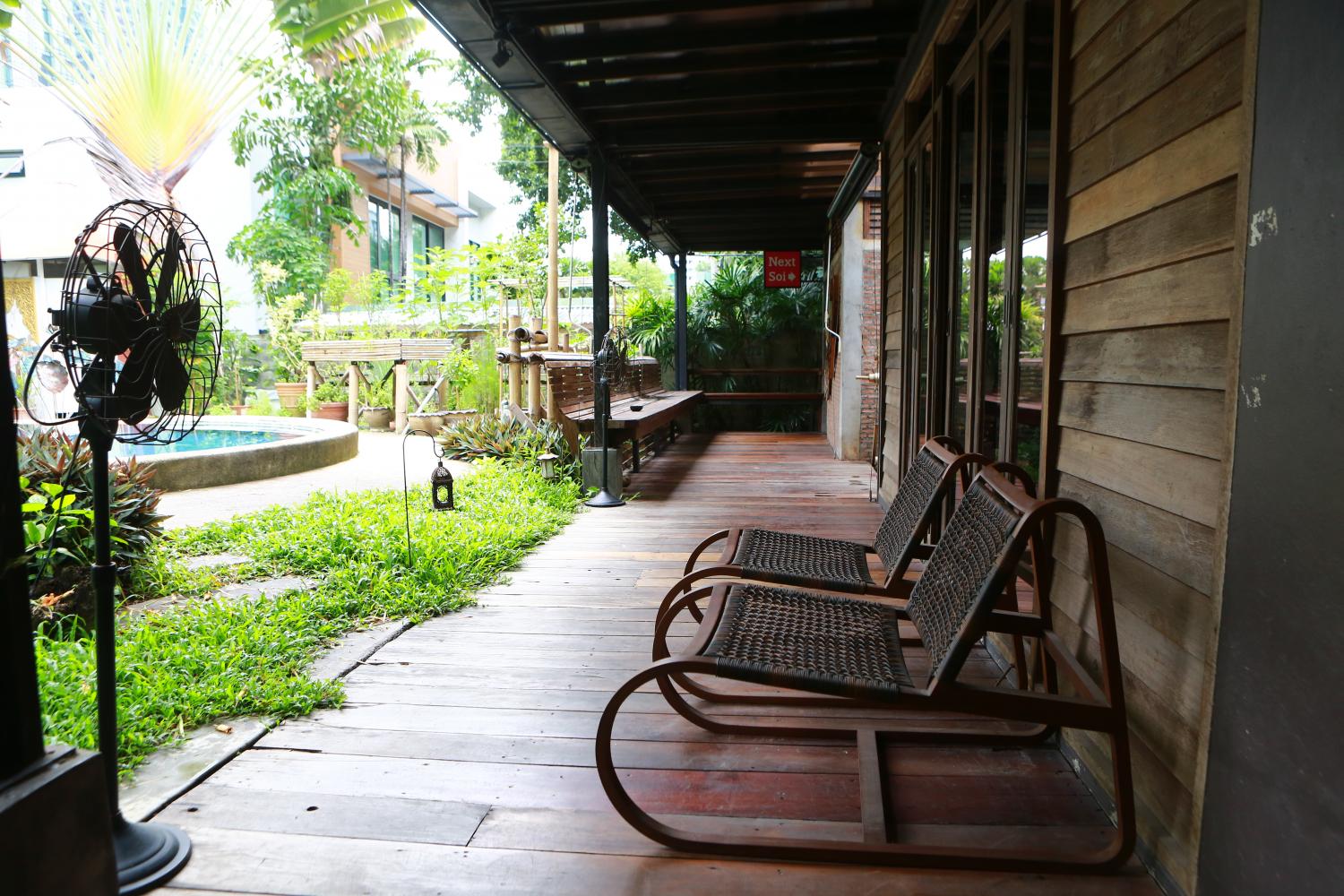
A solar panel on the roof reduces the dependency on electricity. (Photos by Somchai Poomlard)
"Zero of our food waste at Bo.lan goes to landfills. I can say that confidently," says chef and co-owner Dylan Jones. "Even our other waste is moving towards the 70-80% mark in terms of what we retain. We are working with a community who will turn our waste coconut into charcoal. That reduces our charcoal dependence and is part of extending this community idea. We give them our coconut waste, they turn it into charcoal for us and it gives them an income for something that we need to use. This way, we do not add to fossil fuels or the system. It's in its development stages, but is still exciting."
The premises that Bo.lan houses on Sukhumvit 53 is no longer home to just the fine dining restaurant. It now houses Bo.lan chefs’ table; Err, which serves casual funky Thai food; Bo.lan Grocer; Wasteland; Must (have wine); and part of the zero waste to landfill campaign -- Bo.Lan Gardens and an Upcycle Station.
SIPPING SPACES
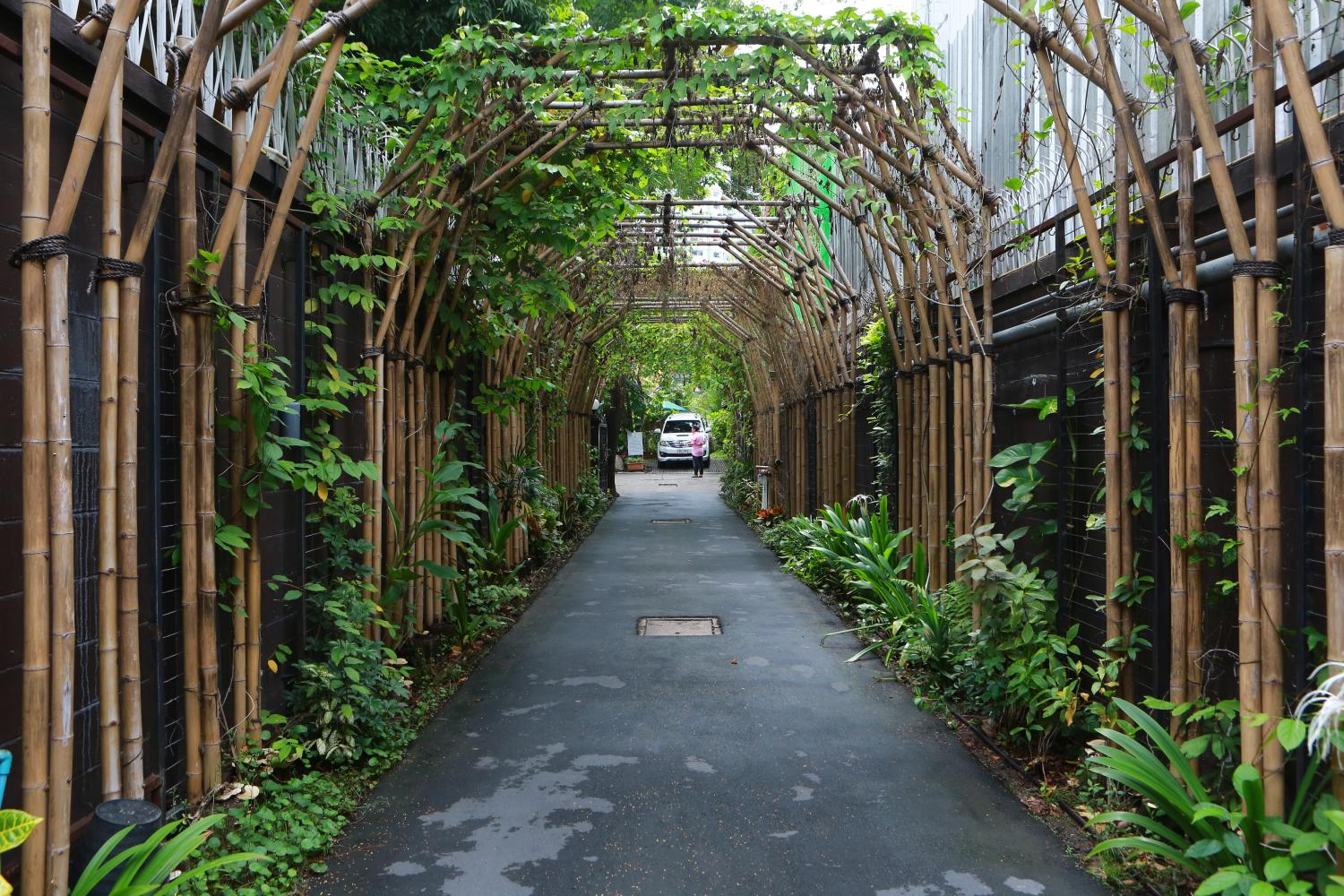
The bamboo tunnel entrance filters the air.
Wasteland community sipping space harvests ingredients from the kitchen, blending flavours to create beverages. It aims to be a role model for a zero waste bar in Thailand.
Dharath "Tot" Hoonchamlong, Bo.lan's environment manager and co-founder of Wasteland, says the name "is a playful way to refer to abandoned land". Wasteland often uses ingredients that the Bo.lan kitchen can't and would otherwise discard. "We wanted to show that we cannot just abandon land and leave it for waste. In the end, we all are happy that we reduce waste and create something that's drinkable and interesting," he adds.
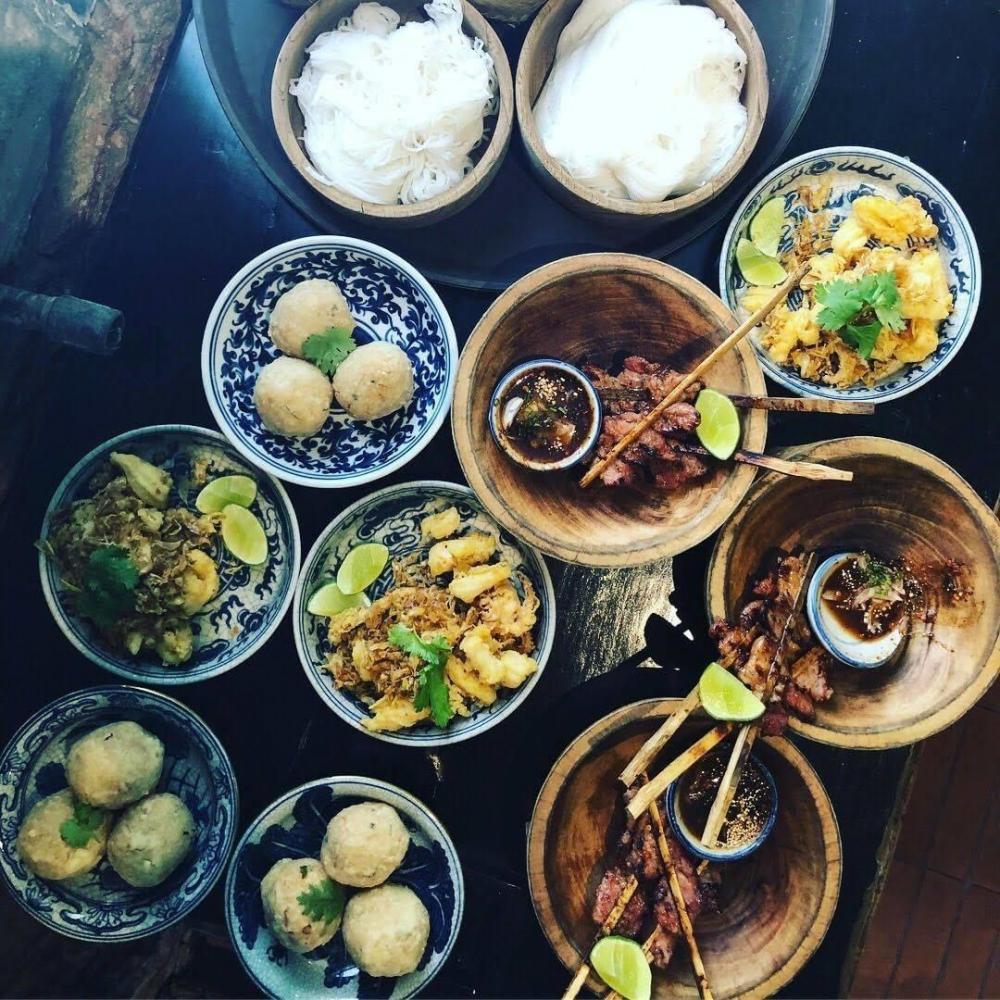
Err uses the same local and sustainable producers as Bo.lan, with the menu showcasing different aspects of Thai dining culture. (Photo: Bo.lan)
Wasteland has a sectioned beverage menu: Fingerprint offers their signature drinks, which remain unchanged for six months to a year. Classical Waste features popular drinks but with ingredients from the kitchen. This changes every one-to-three months. By Chance incorporates random ingredients that the kitchen can't use. The Brew and Steep section is reserved for coffee and teas, like kanom ko, which uses winter melon. No Proof speaks for itself.
The Must (have wine) bar is a casual space open from 5pm, which offers bottles of biodynamic and organic fermented grape juice from Fin Wines. Prices start at 1,600 baht a bottle.
CHAMPIONING ARTISANAL

The Err dining room.
Bo.lan Grocer is pushing the cause for sourcing locally. Their small but expanding list of artisan products come from all over the country. The grocer will offer fresh products, like fish sauce, palm sugar, coconut cream and curry and shrimp paste, from organic, sustainable and small-scale farmers. The Community-Supported Agriculture boxes come with fresh organic fruit and vegetables, and ethical proteins, including recipes. Order via Line @bolanoffice or call 02-260-2962.
PERMACULTURE PHILOSOPHY
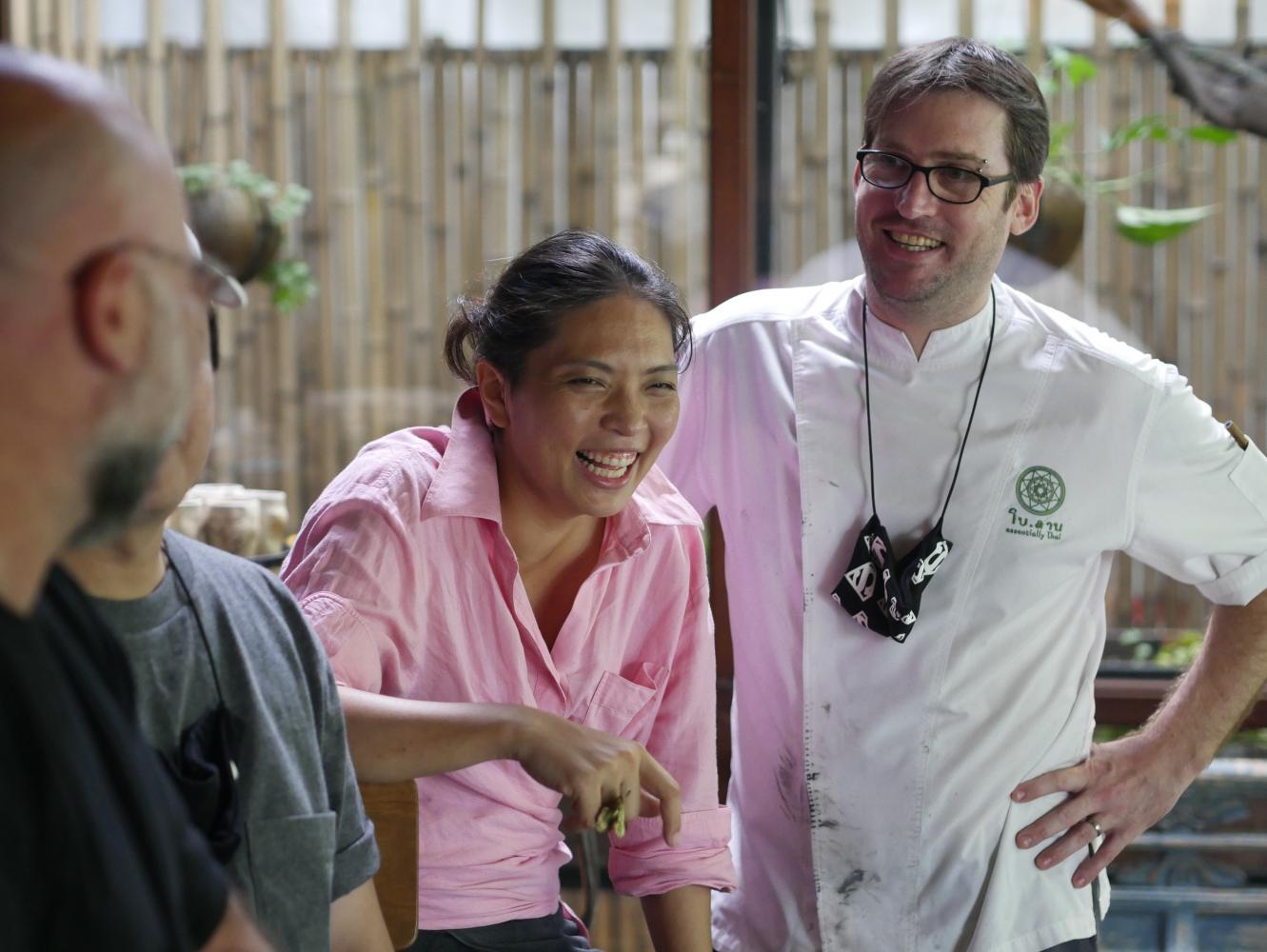
Duangporn 'Bo' Songvisava and Dylan Jones, chefs-patrons of Bo.lan. (Photo: Bo.lan)
Bangkok's first permaculture garden, Bo.Lan plans to be a community garden and learning space. This will include food and environment education and seed collection programmes.
The bamboo tunnel that forms the entrance to Bo.lan creates a path that purifies the air, letting you feel fresh air once you leave the busy polluted road. The garden is a space where kitchen waste is used as fertiliser. "We have curry leaves, dill, ginger, Mexican basil, three types of wild rose, hummingbird flowers and all kinds of coriander. We have been working with a lot of hard-to-find and indigenous plants, many of which didn't make it in the city. It's always interesting to see what survives and what doesn't," says Tot.
The sustainable environment includes a keyhole garden made with old wine bottles and is home to aromatic herbs. The solar tunnel reduces the dependency on electricity and makes use of the tropical climate to light up the entire space. Spiral gardening increases the space for more plants to grow, while an Oklin food composter converts waste to fertiliser for the garden.
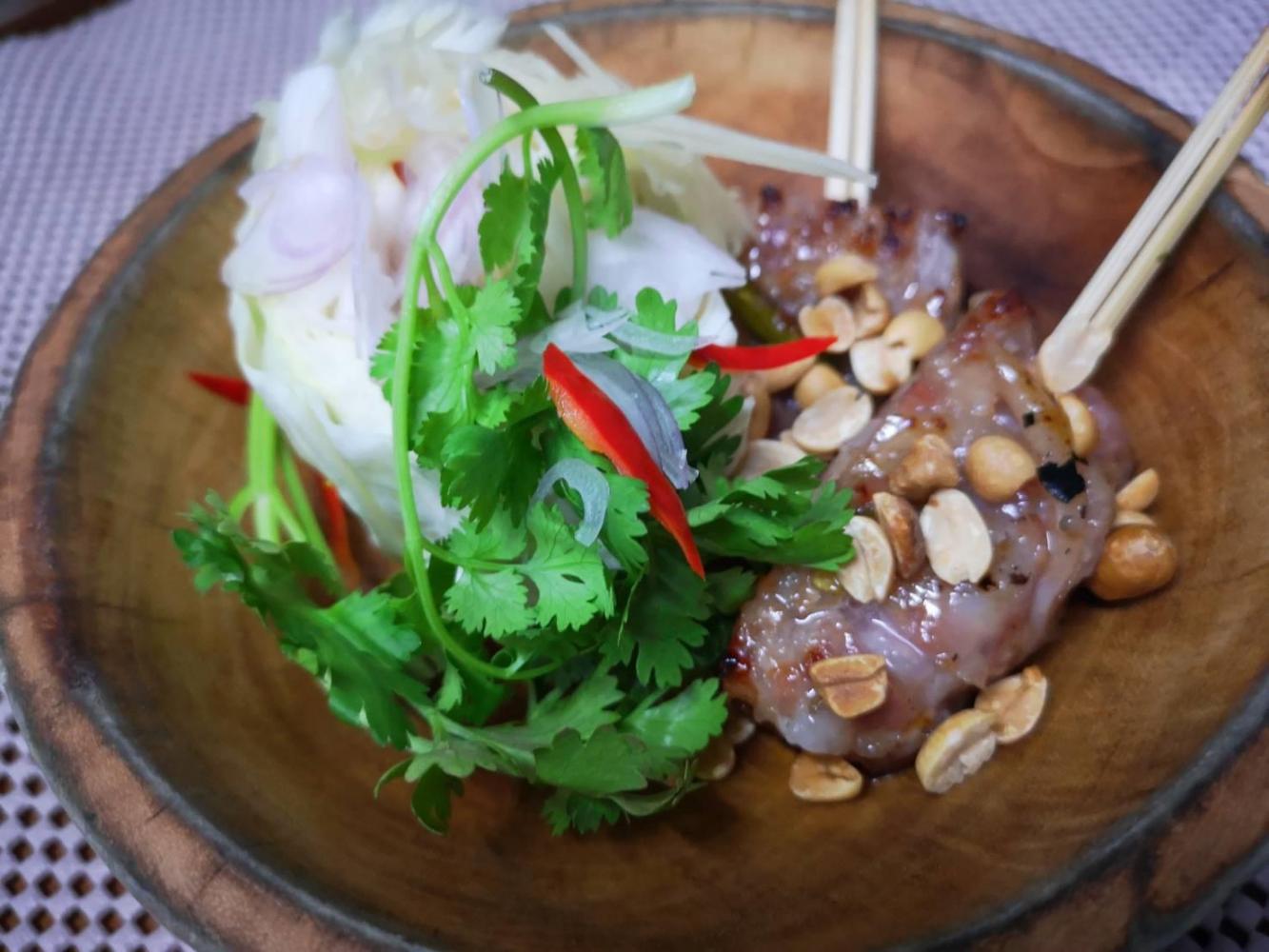
"Eventually we want this to be educational space. We recently hosted a one-day workshop teaching kids about food systems and security and how they can grow their own food and compost the waste. We also want to be an open kitchen where other restaurants can learn. In the future, we would want it to be like an open source and community garden," says Tot.
NO GLASS TO LANDFILL
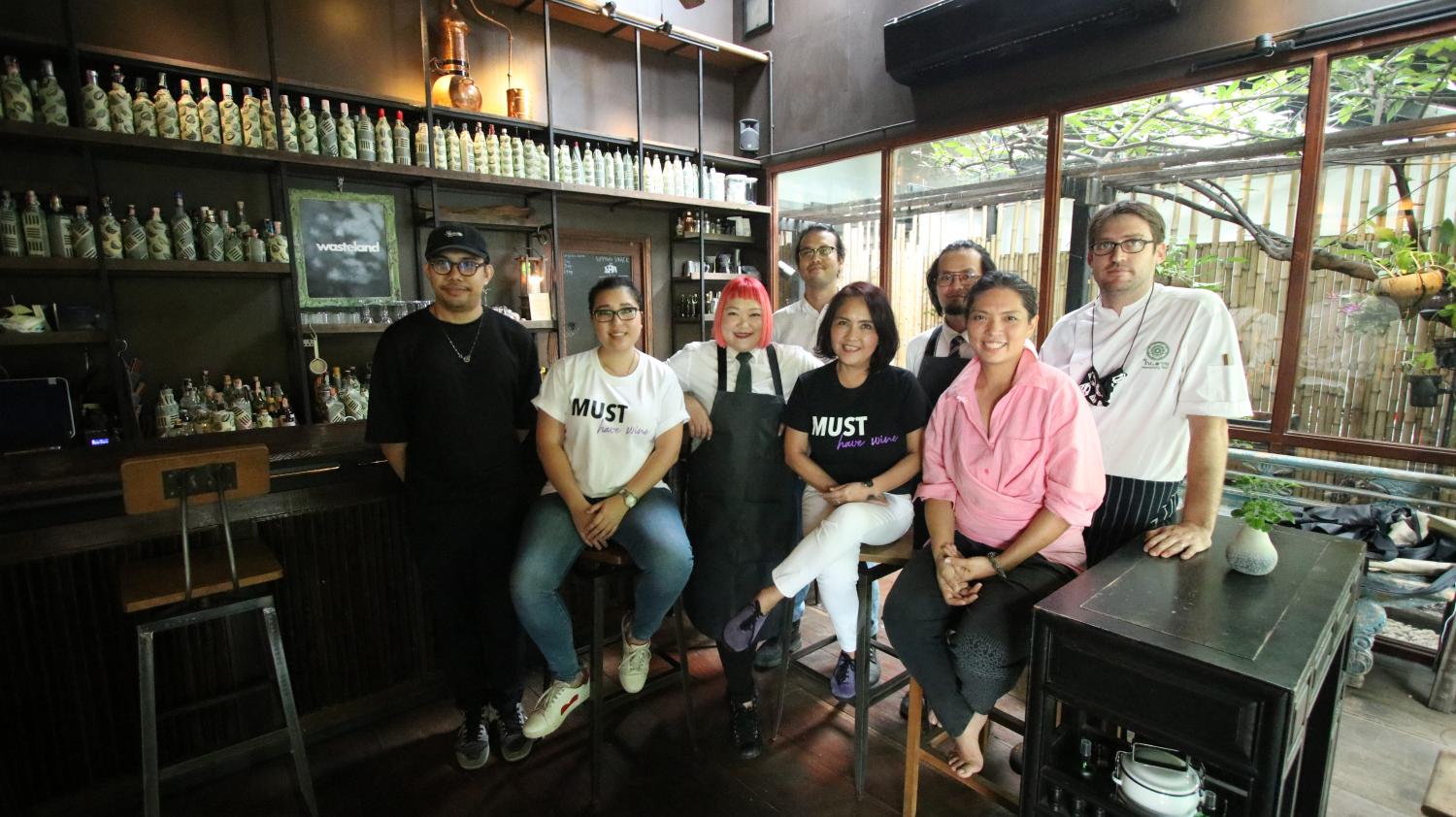
The team behind 24 Sukhumvit 53 Open House. (Photo: Bo.lan)
While glass may be recognised as reusable or environmentally-friendly material, it is important to note that glass can take 1 million years to decompose.
To minimise single-use materials that cannot be composted, Bo.lan has teamed with Etna, which specialises in handmade glassware to create new glass products from old ones. Joining the "No Glass To Landfill" campaign are other Bangkok restaurants like Appia, Peppina, 100 Mahaset, Eat Me, Roast, Gaa, theCommons and Soul Food Mahanakorn.
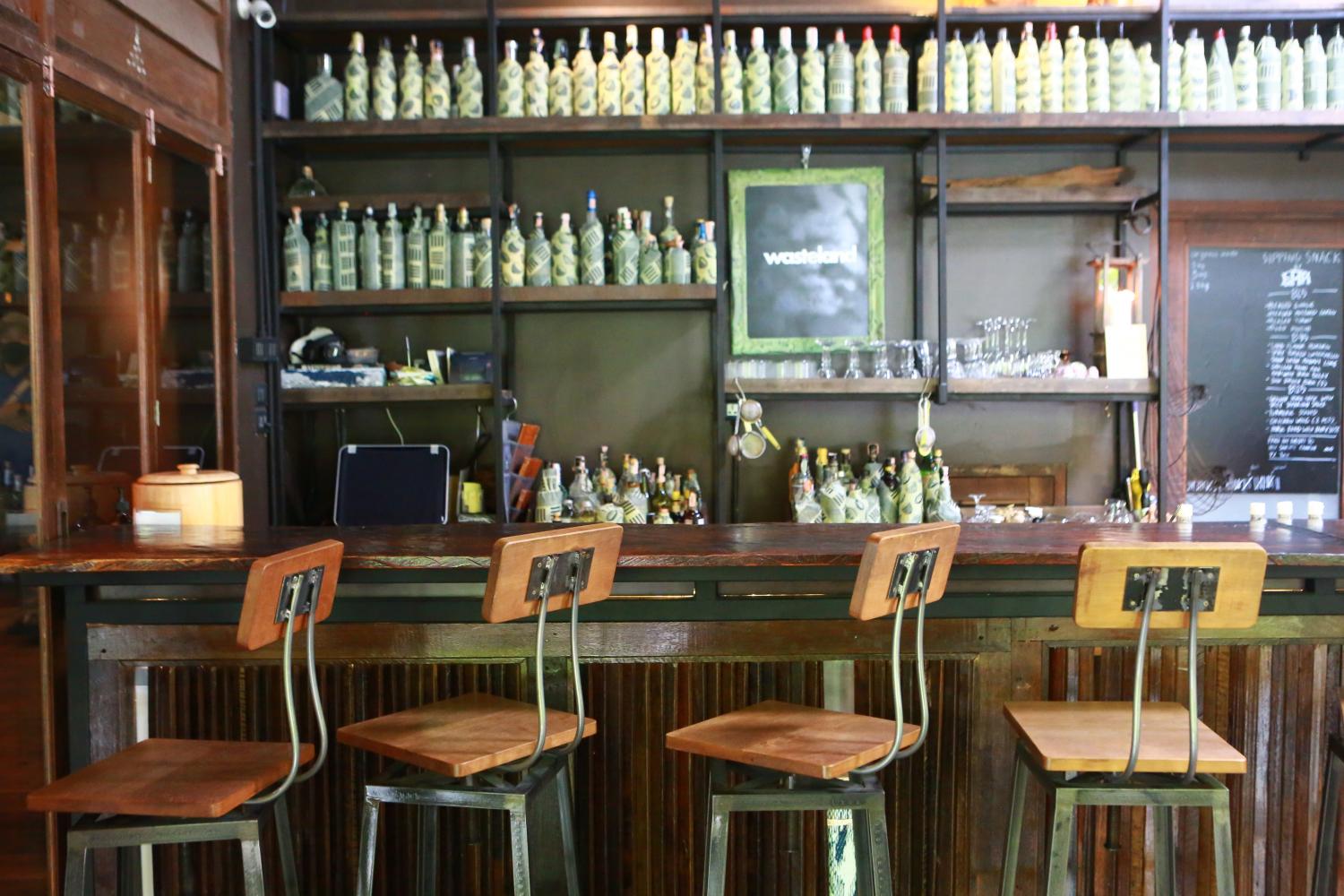
Wasteland.
"Our ultimate goal is to produce some sort of manual that people can use in their restaurants to make themselves more sustainable. We feel plastic bottles and imported water are things that everyone can change quite quickly with very little financial outlay and very little change to their current operations. So it's a low-hanging fruit and it's a great way to stop sending those glass bottles to landfills," says Jones.
ENGAGE, EMPOWER AND ACTIVATE ENVIRONMENTALLY

The Bo.lan initiative is the first major push in Bangkok towards minimising the impact of waste and repurposing it.
"For us, it doesn't stop here. We want to use what we've learnt here and implement it in other projects," says Jones.
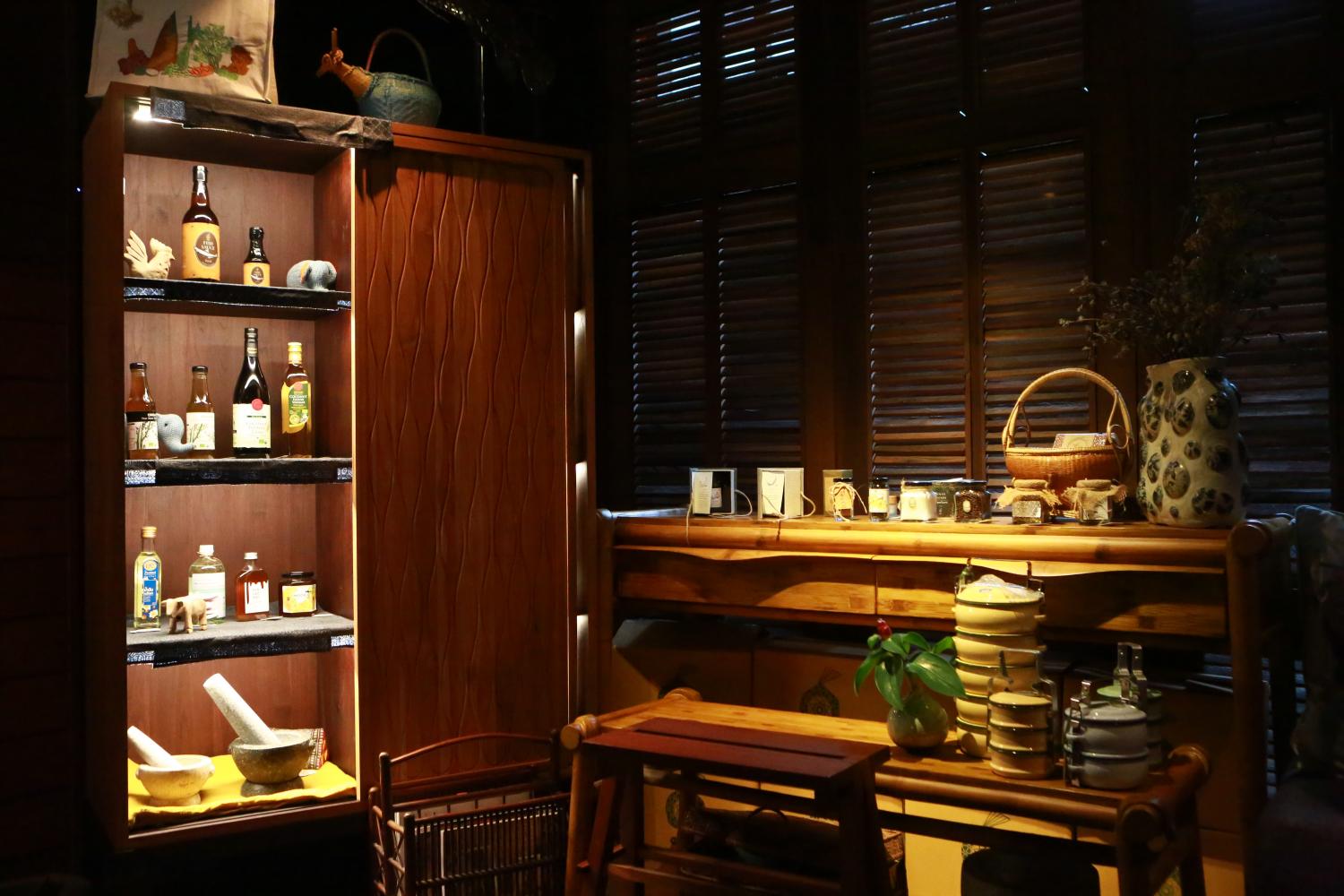
Bo.lan Grocer.
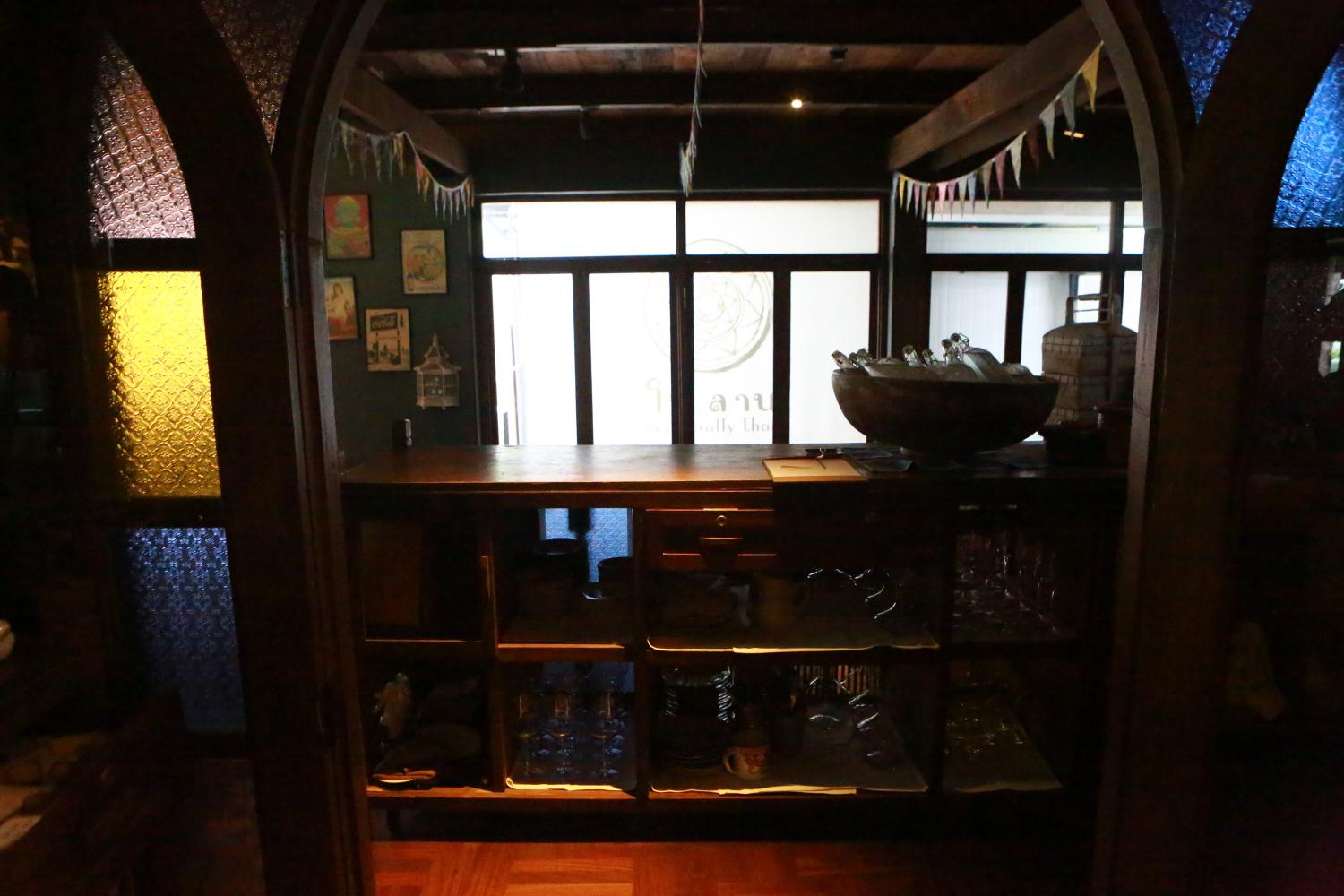
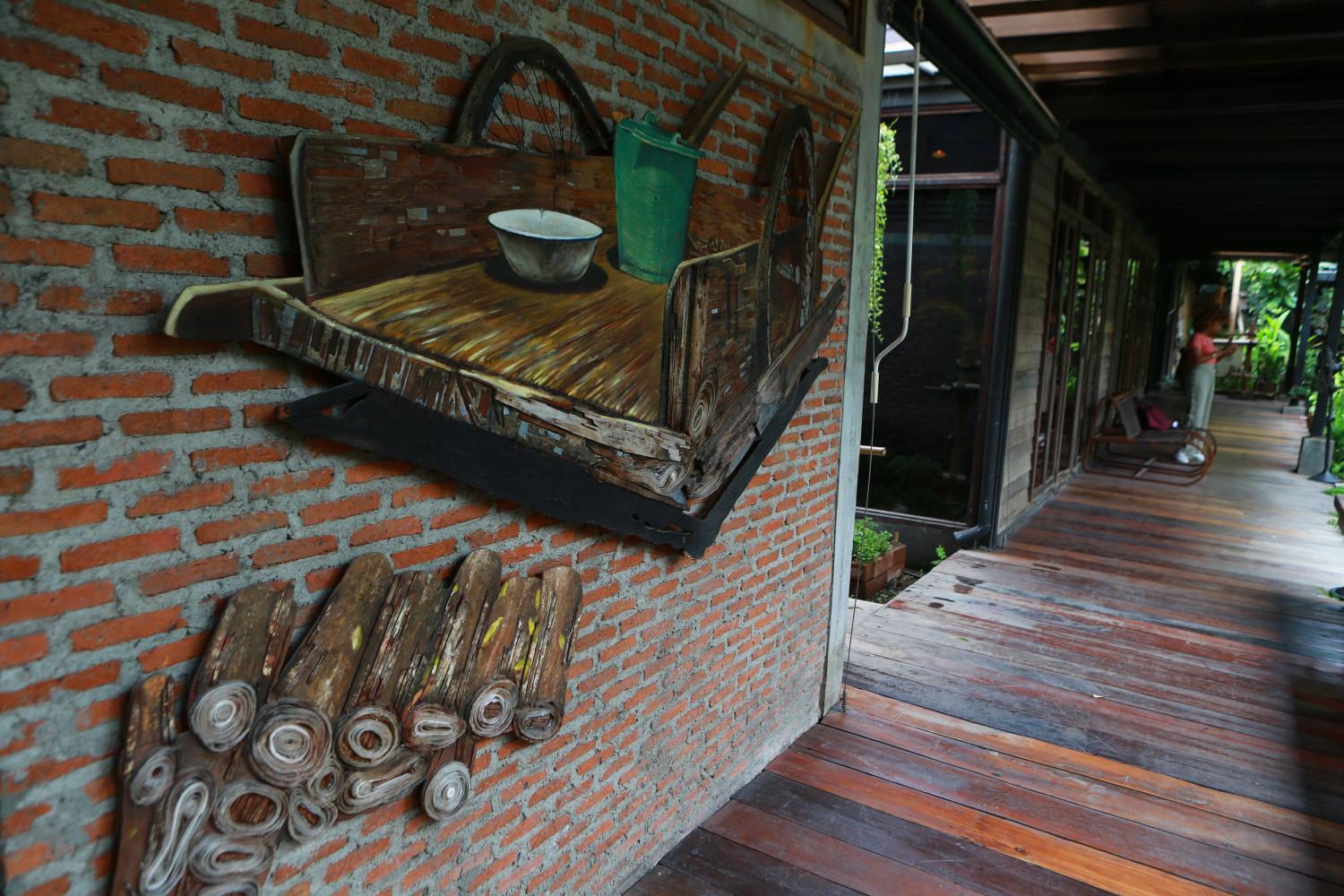
- Bo.lan is accepting reservations for dinner from Wednesday to Saturday and lunch from Thursday to Sunday at 02-260-2962, email contact@bolan.co.th or Line @bo.lan.
- Reservations at Err can be made by calling 02-260-2962 or emailing info@errbkk.com. Wasteland can be reached via Line @wasteland and on 02-653-0154 or on Line @finwine.

